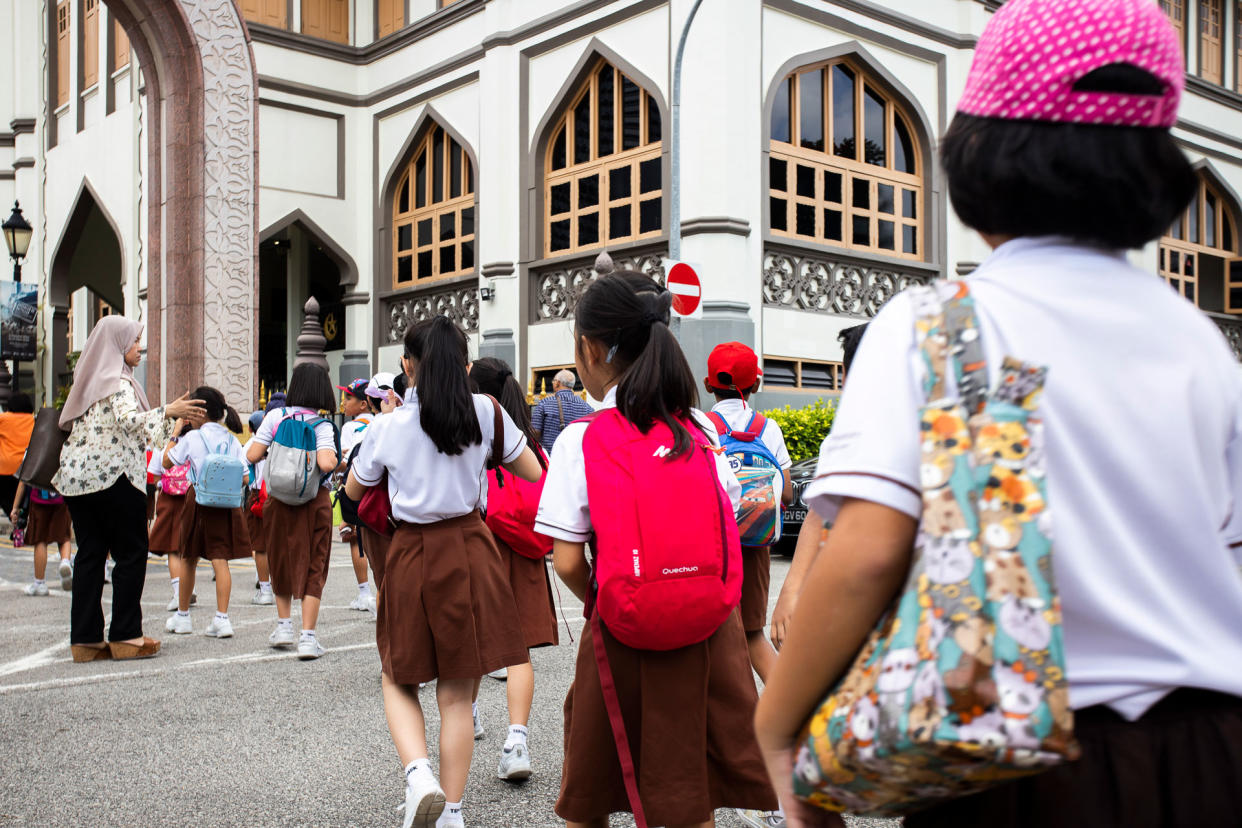Teachers in Singapore work 46 hours per week, more than global average: survey

SINGAPORE — Teachers in Singapore are typically younger and better trained than their peers in other countries but they tend to work longer hours, a global survey has found.
Findings from the 2018 Teaching and Learning International Survey (Talis) announced on Wednesday (19 June) showed that Singapore teachers work 46 hours per week in and out of school.
By comparison, the survey - conducted every five years by the Organisation for Economic Co-operation and Development (OECD) - found that teachers across 48 global education systems work an average of 39 hours per week. According to the Ministry of Manpower’s March statistics, employees in Singapore work an average of 44.6 paid hours per week.
The survey results ranked Singapore in seventh place against their overseas counterparts and fourth place within Asia in terms of number of working hours. Japan topped the list globally with its teachers working an average of 56 hours per week, followed by Kazakhstan and Alberta, Canada.
Teachers here were found to spend 18 hours a week teaching, compared with the survey’s average of 21 hours, followed by 7.5 hours spent marking their students’ work and 7.2 hours spent preparing lessons.
However, they worked two hours less than their peers from the 2013 survey, with the latter group clocking 48 hours per week. Between the two surveys, teachers here spent less time on tasks such as marking (8.7 hours vs 7.5 hours) and administrative work (5.3 hours vs 3.8 hours).

The Ministry of Education’s (MOE) director-general of education Wong Siew Hoong called the reduction in the Singapore teachers’ working hours “gratifying to know”.
“The ministry has put in a quite number of initiatives to try and reduce the teachers’ administrative work, for example, in terms of (electronic) attendance marking and (parental) consent forms,” said Wong.
A total of 3,280 lower secondary teachers and 167 principals from 157 public schools and a random selection of 12 private schools in Singapore were polled between September and October 2017.
The survey found that the average age of teachers here is 38, while the average age of all teachers surveyed globally was 44.
Seven out of 10 here said that teaching was their first career choice, with more than nine in 10 motivated by the ability to influence the development of children and young people.
Similarly, over nine in 10 here work in multicultural schools that implement all four diversity practices presented in the survey, including organising multicultural events, supporting activities or organisations that encourage students’ expression of ethnic and cultural identities as well as teaching them how to deal with ethnic and cultural discrimination.
More training received
In terms of training, 89 per cent of teachers here said they received instruction in subject content, pedagogy and classroom practice before becoming full-fledged teachers. By comparison, 79 per cent of the survey participants globally felt they received the same preparation.
The survey also found that 96 per cent of schools here have mentoring systems for teachers, compared with 64 per cent of schools across all education systems surveyed.
Singapore is one of four education systems in which more than half of novice teachers – defined by the OECD as those with five or fewer years of teaching experience – have an assigned mentor compared with the survey average of 22 per cent.
In the 12 months before the survey, 94 per cent of teachers here attended courses or seminars; 77 per cent participated in peer and/or self observation and coaching; and 66 per cent participated in a network of teachers formed specially for professional development.
About 35 per cent of teachers here participated in professional development activities, including teaching students with special needs, in the 12 months before the survey, compared with 23 per cent of their peers in the 2013 Talis.
“Teachers, through the survey, has indicated the need for more professional development in this area,” said Wong.
“We have been reviewing this and will be reviewing this more to see what more professional development programmes that our teachers can undergo to make them more effective in supporting students with more special needs.”
On average in Singapore, 19 per cent of teachers work in classes with at least 10 per cent of students with special needs, lower than the survey participants’ average of 27 per cent.
The number of such students enrolling in mainstream schools here has doubled from 13,000 in 2013 to about 26,000 last year.
Enhanced teaching methods
More teachers here reported using practices involving cognitive activation and enhanced activities, compared with five years ago.
Of those surveyed, 45 per cent said they make their students work in small groups; 43 per cent allow their students to use information and communications technology for projects or class work. Meanwhile, 34 per cent said they give their students projects that require one week to complete.
By comparison, the 2013 Talis showed 33 per cent, 30 per cent and 27 per cent of teachers here employing the respective methods.
Approximatively 260,000 teachers at 15,000 primary, lower and upper-secondary schools across the 48 global education systems responded to the 58-question online survey.
This year’s Talis is the third edition following its inception in 2008. Singapore participated in the 2013 and 2018 editions.
The findings will be split into two volumes - the first, released on Wednesday, looked at how teachers and school leaders apply their knowledge and skills in the classroom.
The second volume, to be published in early 2020, will focus on prestige, career opportunities, collaborative culture and responsibility and autonomy.
More Singapore stories:
Budget 2019 debate: Subject-Based Banding to replace streaming in secondary schools by 2024
Singapore far from being 'inclusive' for special needs children: industry professionals


